Five Tokyo Tech students have won the top prize at Babycathon, a student idea contest held in Tokyo on March 20, for creating a unique stroller and application for babies and their parents. Sponsored by Pigeon Corporation, a baby and childcare product company, the contest aimed to "utilize IoT to develop the stroller of the future and bring added comfort to babies and their families."
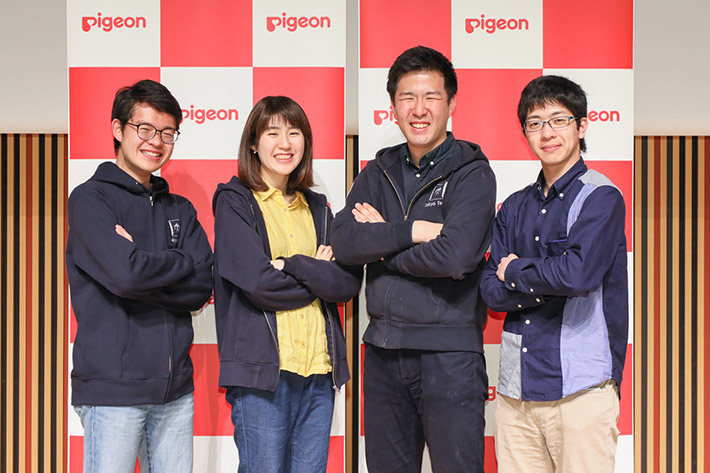
(from left): Kazuya Izawa, Satomi Ono, Hajime Fuijta, and Yuki Onishi — four of five Tokyo Tech students present during announcement of winners
Babycathon — Pigeon's student idea contest 2019
Babycathon brought together students from Ochanomizu University, Shonan Institute of Technology, Chiba Institute of Technology, Nihon University, and Tokyo Tech. Each team put forth their proposals to the sponsors, who are working to realize a more comfortable childrearing environment by rapidly introducing IoT and other cutting-edge technologies into their products.
Tokyo Tech's proposal — Osampo Go
Team Tokyo Tech's proposal, Osampo Go, is a service that combines stroller sharing with an online application to make traveling with toddlers more carefree.
The main concept of the service is to provide users with the ability to "borrow and return different types of strollers whenever they want, wherever they want." In the future, the service will not only enable users to borrow strollers at their destination, but will also help them avoid stroller use at congested locations.
The strollers are linked to an "Osampo Map" application, which informs users of easy-to-use routes when using a stroller, and displays suitable spots for spending time with young children.
By mounting a heat and humidity sensor and inertial measurement unit to the stroller, users can ensure a smooth ride by viewing and recording in real time the child's experiences, how mothers and fathers are using the stroller, and how much irregularity there is on the surface of the road.
By combining stroller sharing and the Osampo Map, the Tokyo Tech team expects to continue developing and improving their creation before they launch Osampo Go as a package. They aim to develop this package by thoroughly carrying out the following steps.
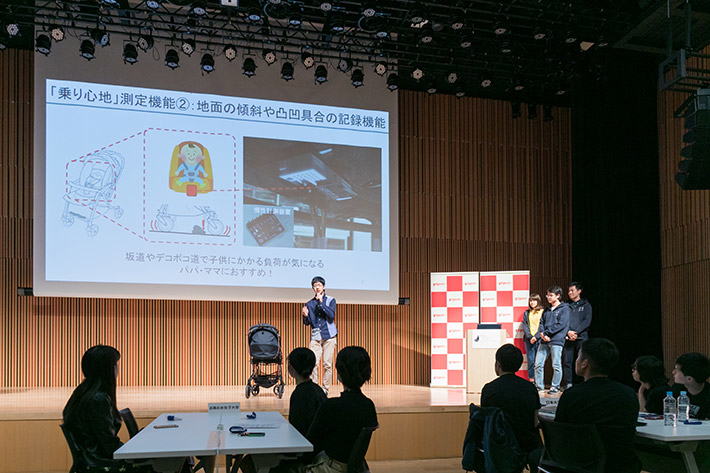
Image of proposed service
- 1.
- Develop the sharing service, and as a result raise awareness of Pigeon's products
- 2.
- Accumulate and process user data in combination with public information
- 3.
- Generate data on the comfort of both babies and parents during stroller use
- 4.
- Reflect this data in Osampo Map
- 5.
- Further increase user rate of sharing service
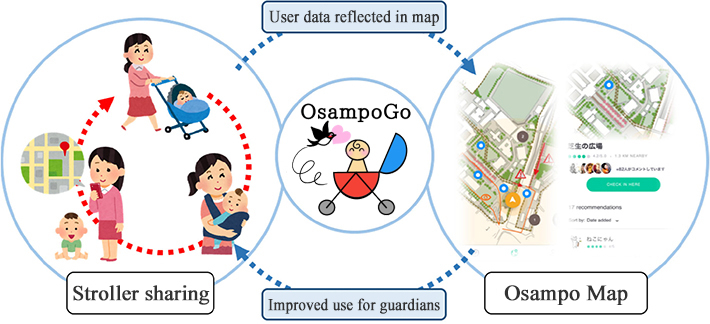
Image of proposed service
Participants and their roles
Hajime Fujita
3rd year, Life Science and Technology
Role: Overall supervision, business model formulation, public relations
Kazuya Isawa
2nd year, Computer Science
Role: User interface development
Yuki Onishi
3rd year, Systems and Control Engineering
Role: Module development
Satomi Ono
3rd year, Life Science and Technology
Role: Marketing surveys, concept development
Mei Fukuda
3rd year, Mathematical and Computing Science
Role: Concept development
Comments from team leader Hajime Fujita
I participated in health++ 2018, a hackathon held at Stanford University last November. During that contest, where our team finished in 2nd place, I learned a lot about biodesign, a method for creating new business to fulfill unmet healthcare needs. While I felt that I could use my experience from last year at this competition, I also feel now that we could have done more. We strived to provide equal roles for all our team members, but perhaps there were times when more leadership was needed.
We approached the Babycathon from the perspective of support for the development of the baby, which can be viewed as one aspect of healthcare. I feel that, while the recent trend is to seek out a variety of new healthcare services, often the needs of the users of these services are not being identified properly.
When designing the "stroller of the future," the needs of the parents who control the stroller are obviously important. But even more so, we need to clarify the needs of the baby. Visualizing how a baby feels is not easy, and we are continuing our efforts through trial and error to see how we can best do this.
I will focus on designing a superior product accompanied by a sustainable business model, and look forward to continuing discussions with all those involved in this project.
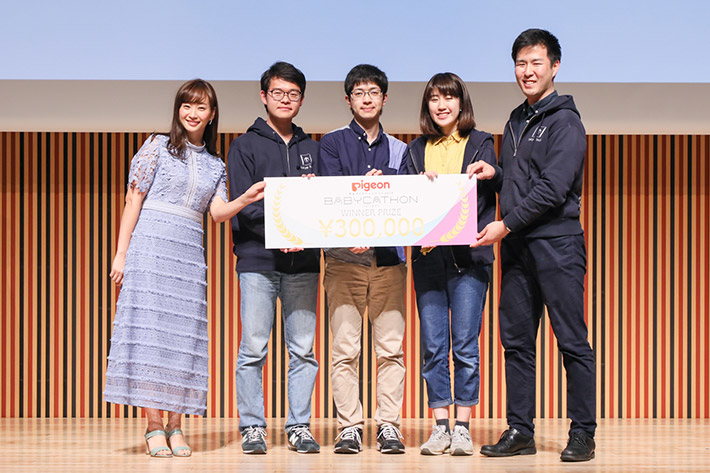
Singer and guest judge Miki Fujimoto
(left) with four winning members
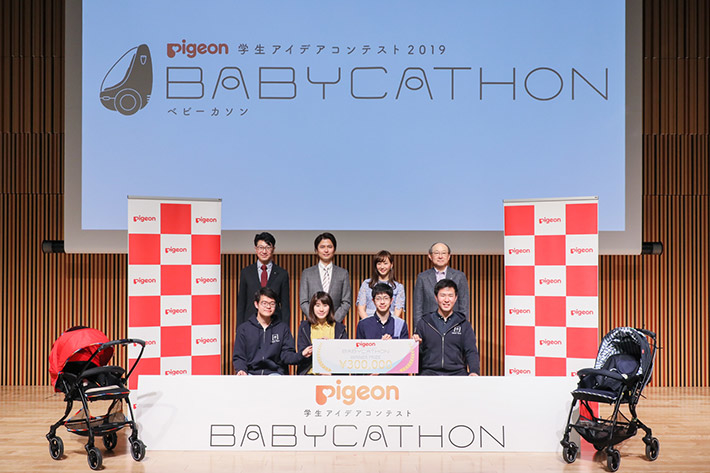
Team Tokyo Tech (front row) accepting award
. Any information published on this site will be valid in relation to Science Tokyo.







